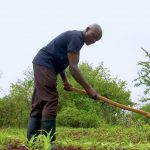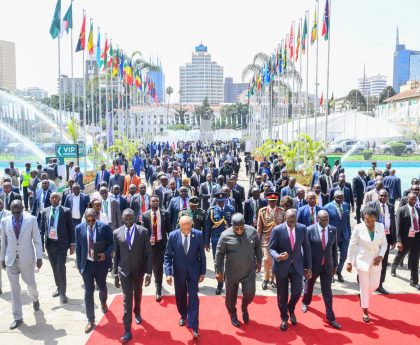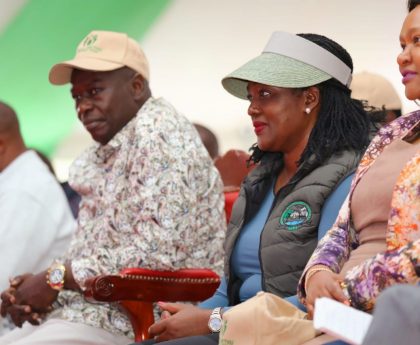By Caroline Tomno
The Kenya forest service has introduced tissue culture propagation in bamboo for mass to boost the Bamboo sector in the country. The acting director of the Kenya forestry research institute KEFRI Dr. Jane Njuguna, says the tall fast-growing woody plant is also used as an important control measure for soil erosion. It is used in protecting water catchments areas as well as mitigating against climate change effects . “Bamboo has now been recognized as an important cash crop in Kenya”, says Dr Njuguna.
Land restoration
Bamboo has been successfully used in land restoration in various parts of Busia county. It was used to restore the Odia and osipata wetlands in Teso south, after it was degraded through gulley erosion According to Dr. Njuguna, the wetland is a hotspot of biodiversity with over 500 bird and over 200 plant species.
The species had nearly been wiped out because of unsustainable land use, but bamboo was successfully used in restoration of the degraded landscape.
Dr Njuguna, says planting bamboo trees along the shores of the flood-prone River Nzoia to curb persistent flooding that displaced scores of people in the recent past. Bamboo is used to prevent the floodwaters from breaking the dykes and eventually finding their way into homes and farms. For instance, in May 2020, over 40,000 people in Bunyala sub-county were displaced by the raging floods and forced to relocate to sixty-two internally displaced persons (IDP) camps set up by the government across the sub-county when River Nzoia burst its banks.
Source of livelihood
Apart from environmental conservation, bamboo plants are also planted for commercial purposes. They are used in construction activities which comprise flooring, roofing, designing and scaffolding, furniture making, food for livestock and shoots as food for humans, bio-fuel, fabrics, cloth, paper, pulp, charcoal, ornamental garden planting,
Global Perspective
The International Bamboo and Rattan Organization (INBAR) is a multilateral development organization which promotes environmentally sustainable development using bamboo and rattan. It has 43 Members. In addition to its Secretariat headquarters in China, INBAR has regional offices in India, Ghana, Ethiopia, and Ecuador.
Its unique set-up makes INBAR an important representative for Members. With over 40 of its members from the Global South, INBAR has played an especially strong role in promoting South-South cooperation for the last 20 years.
The deputy director of INBAR, Dr Lu Wenming director of the international bamboo organization INBAR says the organization is dedicated to harnessing the immense potential of bamboo to address the global challenges like land degradation, climate change, poverty alleviation and plastic pollution. rural poor people are the most susceptible to the effects of climate change . According to Jayaraman countries in the world including Kenya, should adopt large scale bamboo developments. He added that the value chains should be strengthened and scaled up to create a sustainable and lucrative value chain.
According to Jayaraman Durai, the director of global programs in INBAR,large scale bamboo developments in different parts of the world including Kenya should adopt bamboo growing as a sustainable means of livelihood. He says that the production of bamboo products should be scaled up and the value chain strengthened.
Tom Okello the executive director of the national forestry authority in Uganda, says several forests that had been badly degraded were restored through growing of bamboo.
He added that more that 2700 hectares of bamboo had been planted by small holder farmers in Uganda over the last 5 years. He said the livelihoods for many people mainly women had improved through production of briquettes and selling of bamboo products to be used for industrial purposes.
Mohammed Safdar the commercial manager at climate impact partners organization, says the organization is providing seed funding and finance to support small holder farmers across the bamboo value chain.
Isaac Aquah from Ghana says bamboo is being used to establish riparian vegetation along river banks along rivers that have been heavily degraded through mining. He says this had led to a lot of siltation and subsequent loss of human life through flash floods.
To help the country, to attain the 30 percent forest cover. They were speaking at the global conference, GLF Nairobi 2023 Thousands of leading African changemakers, scientists, practitioners and community leaders of all ages convened in Nairobi and online from 130 countries to discuss ways to transform food systems, secure land rights and restore landscapes through African-led solutions.
Speakers outlined numerous ways that Africa and its people can build resilience to the climate crisis and other ecological challenges.



